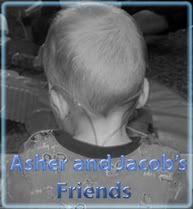Showing posts with label sermon. Show all posts
Showing posts with label sermon. Show all posts
Saturday, July 04, 2009
Independence Day Sermon
A few years ago, there was a special series on A & E about young men discerning whether to enter the Priesthood. I found this show fascinating as it caused me to reflect back on my own journey of discernment when coming to seminary.
The young men were rather extreme with their discernment. One carried a life sized cross miles and miles down an old country road. Another was in the midst of college and spent much of his time speaking with priests, family, and friends about whether this was the right thing to do. His family had always pushed him to enter the priesthood.
One young man who particularly stood out for me decided to make a type of pilgrimage. He left everything he had back at home and journeyed through several states, depending solely upon the generosity of others. He had no real plan, other than his destination would be a Catholic church in another state. Throughout his journey, he had to depend on strangers hospitality. He would share his story with them, with the hopes they would provide for his basic needs: foods, clothing, shelter, even transportation. He carried nothing with him. All he had was the clothes on his back and faith that God’s people would provide what he needed.
This young man on this journey was striving to live out our Gospel text for this Sunday which speaks to Jesus’ call for the twelve. He sent them out, two by two, with only the bare basics. He ordered them to take nothing for their journey except a staff; no bread, no bag, no money in their belts; but to wear sandals and not to put on two tunics. Jesus called for them to live with the bare necessities and to trust that their needs would be met through the kindness of strangers.
It is interesting that this text should show up this week. We have just celebrated as a country our Independence Day; a day in which we remember the sacrifices others gave on our behalf so that we may be a free country. It is a weekend we remember the gift we have in being able to raise our families in a country where we can get an education, where we can vote, where we can worship freely.
It is indeed interesting that this text falls on Independence Day weekend, when the call we are given here in Mark is the pure opposite of independence. In this Gospel reading, Jesus is calling us to a pure dependence; dependence upon not only God but our neighbors. Here, the disciples are told to leave everything they have behind and live in a way that is dependent upon the hospitality of the children of God.
Jesus is calling us to move out of our own comfort zones and into a life that is dependent upon Christ and Christ’s body. We are called to be witnesses, which literally in the Greek means truth tellers. We are to be the ones who tell the whole truth in word and deed, that Jesus Christ has come into this world for the salvation of all people. We are to fulfill the mission given to us in baptism, being dependent upon God and God’s people providing for our needs, in turn bringing the Body of Christ closer together.
We are to be truth tellers whether or not the people will listen. Everyone here today knows how difficult it is to proclaim the Gospel when others do not seem to care to listen. As a congregation, it has been many years since St. Luke was filled to the brim with people. Our community can at times feel burned out and too tired to hear or experience God’s Word lived out. At times one can wonder where God is in the midst of the suffering people that surround us.
And yet here we are, called to be truth tellers no matter if people will listen. We are called to be faithful proclaimers of the Gospel even if people scoff, even if people get angry with us, even if people walk away. We are to be faithful proclaimers of the Good News, inviting people to church, reaching out when they are in need, voicing God’s love for them even if they struggle to love themselves. And if they don’t listen, we simply shake the dust from our sandals and move on.
God has called us to move beyond ourselves and into a world of need. We are to move beyond our own wants, hurts, and desires and to see those whose suffering is greater than our own. We cannot live solely for ourselves as individuals or even ourselves as the body of St. Luke. We are to see the wider church within Mt. Union, within Huntingdon and Mifflin County, beyond the borders of the Allegheny Synod and into the world. We are to be visionaries, always looking for new ways in which our Redeeming God is calling us to serve.
We are called to take the risk that God has prepared us to do, what God has called us to do. We are to love. Love beyond what our minds can cognitively grasp. It is the unconditional, unyielding love that breaks down all walls and barriers. It is the redeeming love of God lived out in the body of Christ. It is the love that calls us to mission in the baptismal waters. It is love that is in the bread and the wine that nourishes and strengthens us in our journey. It is the love that leads us to leave our worldliness behind and to live out the Gospel in its purist state.
There are so many ways in which God is calling us to serve. We are to serve in the ways we have been for years; through providing quilts to those in need of physical comfort, in providing meals to those seniors in our community in need of food and fellowship. Through the foodbank, through the pregnancy center, through the outreach we offer as we generously give of our time and talents throughout the week.
And then there are new ways, ways yet to be discovered. God is always calling us to grow in our vision and in our outreach. We are to be dependent upon each other and our neighbors whose needs may be greater than our own. The call for us is to come together, to meet the needs of others and to have our own needs met. It is the call for us to be united as God’s children, striving to proclaim the Good News and to grow stronger in our faith and outreach.
As I think back on the young man who left everything behind as he made his pilgrimage, I cannot help but think of all the people who reached out to him. It is easy to think of all the walls people build up. I for one worried as this young man began his pilgrimage as I didn’t think many people would open themselves to reaching out. Yet so many people did. Everything this young man needed God provided through his children. Total strangers, all with different backgrounds: young, old, rich, poor, black, white….they all reached out to help this young man.
What this story made me realize is the great potential we have as a community. To continue growing in our faith, in our outreach, in our love, and in our dependence upon each other. God has called us into a life of dependence upon Christ and Christ’s body within the world. May we recognize together the ways in which we need each other and the ways in which we can reach out to those in need. Thanks be to God. Amen.
Saturday, July 26, 2008
Romans 8:26-39 Sermon
A persons hands can tell a thousand stories. They tell of pain with their scars, cracks, and aging. They can tell of celebrations through their manicures and delicately painted nails. Some hands are soft, speaking at times to a calmer, more sedate life. Others are callused, bruised, and scarred speaking to years of hard labor. Hands can tell stories.
Nelson Mandela, in his autobiography, A Long Walk to Freedom, recalls the scene when he first laid eyes on his granddaughter. It was after his fourteenth year in prison, when he was granted permission for a short visit from his daughter. Upon her arrival, his daughter ran across the room to embrace him. Mandela had not held his daughter since she was a young girl, and it was both poignant and dizzying to hug this fully grown woman, his child.
It was after this embrace that she then handed over her own newborn baby, Nelsons granddaughter, into his callused, leathery hands. He recalls, “To hold a newborn baby, so vulnerable and soft in my rough hands, hands that for too long had held only picks and shovels, was a profound joy. I don’t think a man was ever happier to hold a baby than I was that day”.
Hands tell a story. They can tell of how we, who begin like that newborn child with smooth, soft skin, age from the wear and tear of this journey we call life. Our hands, like our hearts, can become callused and scarred by the years of suffering, distress, and peril we face. They are permanent markers which will ultimately always remind us of the journey we have faced.
In Paul’s letter to the Romans, he is writing to a group of Christians who are faced day in and day out with suffering. They have faced conflicts within the Church itself, struggling between a Jewish and Gentile understanding of what is the Christian church. As with any Christian body during that time, they have also suffered persecution, exile, and other forms of distress. Their life was filled with turmoil; I can only imagine what kind of marks the pain and suffering experienced left on their hands.
It is in those times, the times that leave marks forever engrained within us, that often we may not feel like praying. We, those who are known as “people of faith” may feel spiritually empty. They are the times when the sorrows of this world have become too much. Like Mandela, we may feel as though we have been imprisoned by years spent in a bad marriage, depression, grief over the loss of a loved one, or suffering years of poverty or abuse. While we may not be encaged within the walls of a prison cell, the pain we are living in has trapped us from living our lives and experiencing the joys found within a strong faith.
Suffering can take its toll on our relationships, including our relationship to God. While some may teach us that doubting, questioning, and being angry towards God is bad and unfaithful, it is a natural part of the relationship. Like the relationship we have with our spouse, parent, friend, or child, we will get angry, we will doubt, we will question. It is what it means to be in relationship. When we have suffered pain, turmoil, and conflict, often times it will impact how we relate to God. We may yell, we may write letters, we may become silent. Sometimes there just aren’t the words necessary to adequately talk to God. And sometimes, we just don’t want to communicate.
It is in the times where the ability to communicate with God come up short, when we are just too angry, too sad, too confused to find the words, prayer seems impossible. It is in those moments where we feel we must lean on others to have faith for us, as ours comes up short. We may believe in God, yet our emotions overrun our ability to speak and relate.
In those moments, we can trust that the Spirit will intercede for us. Paul states “Likewise the Spirit helps us in our weakness; for we do not know how to pray as we ought, but that very Spirit intercedes with sighs too deep for words.” We can know, we can trust, that even when our hearts are too callused, when the death of our child shuts us down completely, the Spirit will do the work for us.
The Spirit is the Spirit which will intercede, speaking on our behalf. It is the Spirit that will overwhelm us like the wind, bringing us comfort and peace in the midst of chaos. It is the Spirit that when we feel most abandoned and alone is indwelling within each of us. It is the Spirit that has been with us since the beginning and will never leave.
When those times of complete weakness, physically, emotionally, spiritually, come around, the Spirit will breath those sighs. They are the sighs that can speak beyond our mere vocabulary to communicate our deepest pangs of grief. They are the sighs that will communicate all our suffering, all our grief, all our anger. The sighs are the ones that will echo the truth of every bruise, scar, calluse, and crack that are engrained on our hands and on our heart. They are the sighs that will communicate our hope and are longing for healing.
I read once that “a record of God’s faithfulness in the past combines with hope in a better future for one end: to equip us for the present.” Paul’s message to the Romans was a message speaking to a future. It is the promise that even though they were suffering, God did and still does have a great plan for the future. A plan where all suffering will end and the dead will be resurrected, offering a new Heaven and a New Earth. It is a message speaking of hope in the midst of suffering.
What Paul may or may not have realized is that his message of hope for the future brings us hope for the present. We have the past which speaks to God’s faithfulness. God’s faithfulness recorded in scripture and God’s faithfulness recorded in our personal history. God is and will continue to remain faithful. We are also given hope for the future. It is the knowledge that sin and evil will ultimately be destroyed and that God has given us the gift of grace; we have the hope of the resurrection.
These promises and the evidence of God’s faithfulness in the past is what equips us for present suffering. It is what gives us comfort in despair, hope in times that feel so hopeless. These promises are what give us the knowledge to realize that when times are too difficult and painful to use words, the Spirit will intercede and sigh on our behalf. When we are too weak to do the work, God will continue to do the work for us.
We are all faced with the marks of suffering. We can look at our hands and sometimes see the physical evidence. We can also look internally and see how are hearts have been scarred over many times throughout this life. And yet, with each day that we continue on, hope will reappear in the soft, unscarred skin of a baby, a reminder of our future. God does promise us that hope, and God does promise us a Spirit that will intercede when we struggle to recognize that hope and the words just will not come. While the Spirit does not prevent the scarring that will ultimately occur, the Spirit will indeed sigh on our behalf and will always be present with us, offering comfort, peace, and continued hope for the future. Amen.
Nelson Mandela, in his autobiography, A Long Walk to Freedom, recalls the scene when he first laid eyes on his granddaughter. It was after his fourteenth year in prison, when he was granted permission for a short visit from his daughter. Upon her arrival, his daughter ran across the room to embrace him. Mandela had not held his daughter since she was a young girl, and it was both poignant and dizzying to hug this fully grown woman, his child.
It was after this embrace that she then handed over her own newborn baby, Nelsons granddaughter, into his callused, leathery hands. He recalls, “To hold a newborn baby, so vulnerable and soft in my rough hands, hands that for too long had held only picks and shovels, was a profound joy. I don’t think a man was ever happier to hold a baby than I was that day”.
Hands tell a story. They can tell of how we, who begin like that newborn child with smooth, soft skin, age from the wear and tear of this journey we call life. Our hands, like our hearts, can become callused and scarred by the years of suffering, distress, and peril we face. They are permanent markers which will ultimately always remind us of the journey we have faced.
In Paul’s letter to the Romans, he is writing to a group of Christians who are faced day in and day out with suffering. They have faced conflicts within the Church itself, struggling between a Jewish and Gentile understanding of what is the Christian church. As with any Christian body during that time, they have also suffered persecution, exile, and other forms of distress. Their life was filled with turmoil; I can only imagine what kind of marks the pain and suffering experienced left on their hands.
It is in those times, the times that leave marks forever engrained within us, that often we may not feel like praying. We, those who are known as “people of faith” may feel spiritually empty. They are the times when the sorrows of this world have become too much. Like Mandela, we may feel as though we have been imprisoned by years spent in a bad marriage, depression, grief over the loss of a loved one, or suffering years of poverty or abuse. While we may not be encaged within the walls of a prison cell, the pain we are living in has trapped us from living our lives and experiencing the joys found within a strong faith.
Suffering can take its toll on our relationships, including our relationship to God. While some may teach us that doubting, questioning, and being angry towards God is bad and unfaithful, it is a natural part of the relationship. Like the relationship we have with our spouse, parent, friend, or child, we will get angry, we will doubt, we will question. It is what it means to be in relationship. When we have suffered pain, turmoil, and conflict, often times it will impact how we relate to God. We may yell, we may write letters, we may become silent. Sometimes there just aren’t the words necessary to adequately talk to God. And sometimes, we just don’t want to communicate.
It is in the times where the ability to communicate with God come up short, when we are just too angry, too sad, too confused to find the words, prayer seems impossible. It is in those moments where we feel we must lean on others to have faith for us, as ours comes up short. We may believe in God, yet our emotions overrun our ability to speak and relate.
In those moments, we can trust that the Spirit will intercede for us. Paul states “Likewise the Spirit helps us in our weakness; for we do not know how to pray as we ought, but that very Spirit intercedes with sighs too deep for words.” We can know, we can trust, that even when our hearts are too callused, when the death of our child shuts us down completely, the Spirit will do the work for us.
The Spirit is the Spirit which will intercede, speaking on our behalf. It is the Spirit that will overwhelm us like the wind, bringing us comfort and peace in the midst of chaos. It is the Spirit that when we feel most abandoned and alone is indwelling within each of us. It is the Spirit that has been with us since the beginning and will never leave.
When those times of complete weakness, physically, emotionally, spiritually, come around, the Spirit will breath those sighs. They are the sighs that can speak beyond our mere vocabulary to communicate our deepest pangs of grief. They are the sighs that will communicate all our suffering, all our grief, all our anger. The sighs are the ones that will echo the truth of every bruise, scar, calluse, and crack that are engrained on our hands and on our heart. They are the sighs that will communicate our hope and are longing for healing.
I read once that “a record of God’s faithfulness in the past combines with hope in a better future for one end: to equip us for the present.” Paul’s message to the Romans was a message speaking to a future. It is the promise that even though they were suffering, God did and still does have a great plan for the future. A plan where all suffering will end and the dead will be resurrected, offering a new Heaven and a New Earth. It is a message speaking of hope in the midst of suffering.
What Paul may or may not have realized is that his message of hope for the future brings us hope for the present. We have the past which speaks to God’s faithfulness. God’s faithfulness recorded in scripture and God’s faithfulness recorded in our personal history. God is and will continue to remain faithful. We are also given hope for the future. It is the knowledge that sin and evil will ultimately be destroyed and that God has given us the gift of grace; we have the hope of the resurrection.
These promises and the evidence of God’s faithfulness in the past is what equips us for present suffering. It is what gives us comfort in despair, hope in times that feel so hopeless. These promises are what give us the knowledge to realize that when times are too difficult and painful to use words, the Spirit will intercede and sigh on our behalf. When we are too weak to do the work, God will continue to do the work for us.
We are all faced with the marks of suffering. We can look at our hands and sometimes see the physical evidence. We can also look internally and see how are hearts have been scarred over many times throughout this life. And yet, with each day that we continue on, hope will reappear in the soft, unscarred skin of a baby, a reminder of our future. God does promise us that hope, and God does promise us a Spirit that will intercede when we struggle to recognize that hope and the words just will not come. While the Spirit does not prevent the scarring that will ultimately occur, the Spirit will indeed sigh on our behalf and will always be present with us, offering comfort, peace, and continued hope for the future. Amen.
Subscribe to:
Posts (Atom)











